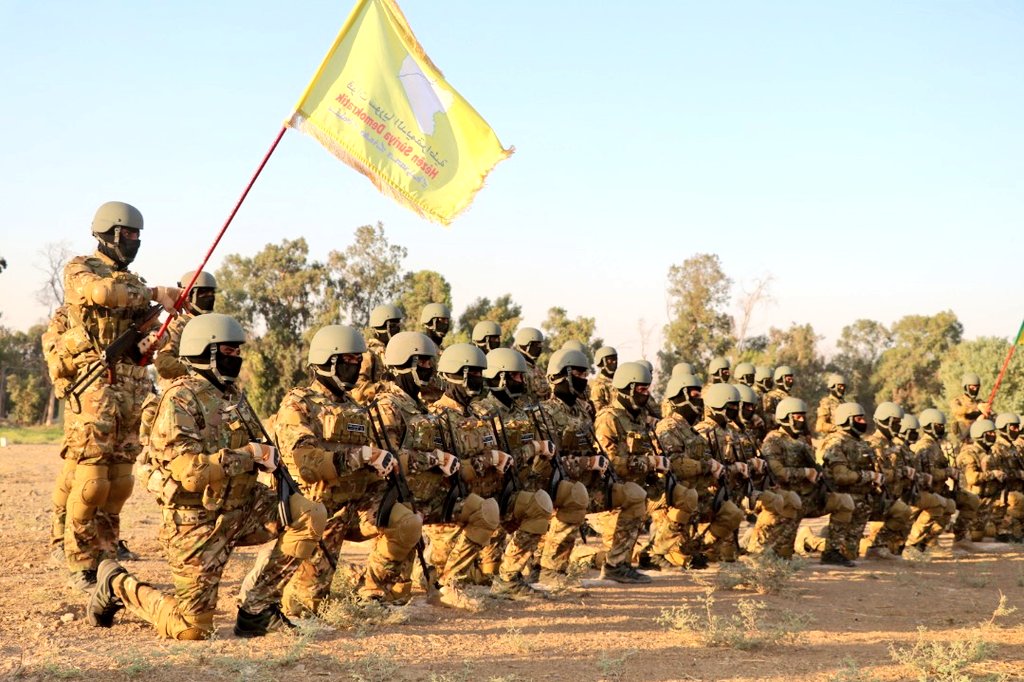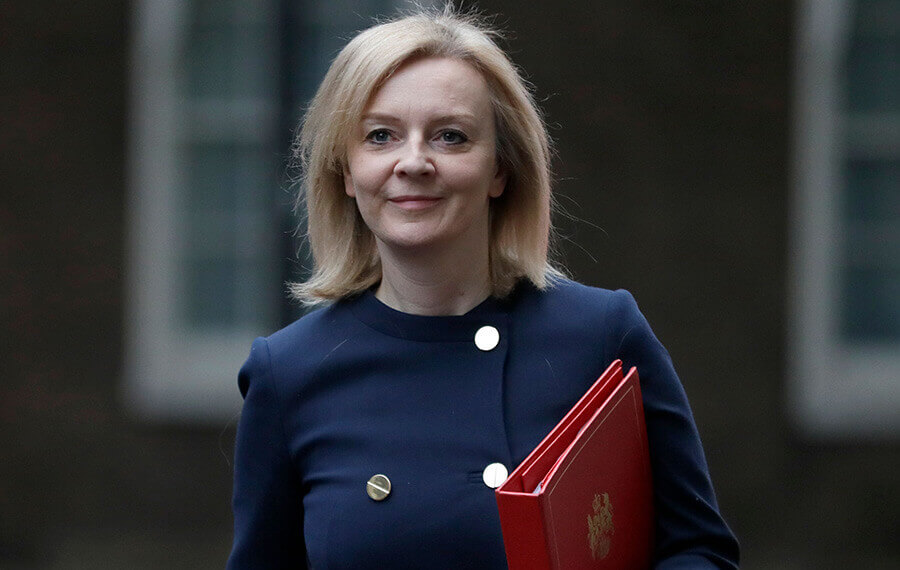South Asia
Pakistan and Afghanistan have agreed to set up a joint National Level Coordination Mechanism that will facilitate coordination at border crossing points between the two countries. The decision was made during Pakistani National Security Advisor Moeed Yusuf’s visit to Afghanistan when he met with several high-ranking Taliban officials, including acting Prime Minister Abdus Salam Hanafi and acting Foreign Minister Amir Khan Muttaqi. [Al Jazeera]
United Nations Secretary-General Antonio Guterres said that the organisation received “credible allegations” suggesting that over 100 former employees of the West-backed Afghan government have been killed since the Taliban’s takeover in August. He also noted that over two-thirds of these extrajudicial killings were orchestrated by the Taliban. [NPR]
Central Asia and the Caucasus
Armenia and Canada are “united by strong ties and common approaches based on the common values of democracy, protection of human rights and the rule of law,” the Armenia Foreign Ministry stated on the 30th anniversary of diplomatic relations between the two countries on Monday. It added that Armenia is ready to “strengthen” bilateral ties and raise them to a “qualitatively new level.” [Armenia MFA]
Azerbaijani, Iranian and Turkish officials will hold a trilateral meeting in Tehran in the near future, Iranian Foreign Ministry Spokesman Saied Khatibzadeh said on Monday. The date was not announced by Khatibzadeh, who said that the meeting would discuss a number of bilateral and regional issues. [Azer News]
East and Southeast Asia
A Japanese F-15 fighter jet, which went missing shortly after take-off on Monday, is believed to have crashed. Both crew members on board are not yet accounted for, Defence Minister Nobuo Kishi said on Tuesday. [Channel News Asia]
China, on Sunday, detected 37 new cases of COVID-19 among officials and athletes participating in the Beijing Winter Olympic Games. [The Straits Times]
Europe
Poland’s Defence Minister, Pawel Soloch, confirmed that President Andrzej Duda has made the decision to offer Ukraine military support amid Russia’s aggressive military activity along the Ukrainian border. In a press briefing on Monday, Soloch also made it clear that Poland’s military support was only to, “be used for defence, not for attack,” adding that Warsaw and Kyiv had discussed “every type” of aid for Ukraine. Poland’s offer now awaits a response from Ukraine. [The First News]
Chinese tech giant Huawei has initiated arbitration proceedings against Sweden after the latter banned the roll-out of its 5G products. In a statement on Sunday, Huawei said, “The Swedish authorities’ decision to discriminate against Huawei and exclude it from the 5G roll-out has significantly harmed Huawei’s investment in Sweden, in breach of Sweden’s international obligations.” Sweden is the first European Union country to restrict network operators from using Huawei equipment in their 5G products. [Euronews]
British Foreign Secretary Liz Truss announced the introduction of a law in the House of Commons that seeks to strengthen and expand the United Kingdom’s sanctions regime to allow sanctions against Russian individuals and businesses over the tensions in Ukraine. According to a release by the UK government, this would expand the existing law in the UK that only allows sanctions over their links with the invasion of Ukraine and allow the country to sanction individuals and businesses for their “significance to the Kremlin.” [UK Government]
Latin America and the Caribbean
The United States (US) has begun expelling some Venezuelan migrants to Colombia without giving them a chance at seeking asylum after crossing the US-Mexico border. Washington said that the move was meant to curb the spread of COVID-19. [Reuters]
El Salvador has rejected a call by the International Monetary Fund (IMF) to drop Bitcoin as legal tender. Salvadoran Treasury Minister Alejandro Zelaya said that “no international organisation is going to make us do anything, anything at all” and added that the government’s decision to make Bitcoin legal tender was a matter of “sovereignty.” [Associated Press]

Middle East and North Africa (MENA)
The United Arab Emirates intercepted a ballistic missile launched by Yemen’s Houthi rebels on Monday as Abu Dhabi hosted Israeli President Isaac Herzog. A Houthi military spokesman said they had launched missiles and drones towards Abu Dhabi and Dubai. [Associated Press]
The Kurdish Syrian Democratic Forces (SDF) said on Monday that they were in complete control of the Ghwayran prison in Syria’s Al-Hasakah province, more than a week after it was overrun by Islamic State (IS) militants. More than 120 SDF fighters and 374 terrorists were killed during the 10-day stand-off. [Associated Press]
North America
The National Archives of the United States (US) on Monday slammed former President Donald Trump for providing them with torn-up White House records that were forwarded to the committee investigating the January 6 insurrection. Under the Presidential Records Act, Presidential administrations are required to turn over all of their documents including memos, letters, notes, emails, faxes and other written communications related to the president at the end of their term. However, Trump had a potentially unlawful habit of tearing up documents that resulted in National Archive workers having to stitch together small pieces of paper. [The Washington Post]
Last week, the United States (US) Justice Department made public documents regarding a Kansas woman who has been charged with providing support to the terrorist organisation Islamic State of Iraq and Syria (ISIS). According to the Justice Department, Allison Fluke-Ekren expressed carrying out terrorist attacks in the US at the behest of ISIS at locations such as a mall or university between 2014 to 2017. She particularly “fantasised” about committing an attack at a densely crowded place. Fluke-Ekren was also responsible for training women in ISIS. [ABC News]
Oceania
On Tuesday, while discussing the government’s response to the COVID-19 pandemic, Australia’s Prime Minister, Scott Morrison, said, “I haven’t got everything right.” Speaking at the National Press Club in Canberra, Morrison said, “I’ll take my fair share of the criticism and the blame. It goes with the job.” Furthermore, Morrison said he understands the frustration and disappointment of Australians over the handling of the pandemic and admitted the mistakes made with communication amid the spread of the Omicron variant of COVID-19. [Sky News]
On Tuesday, New Zealand, Australia and France reiterated support for the Pacific island nation of Tonga following the eruption of an underwater volcano Hunga Tonga-Hunga Ha’apai on January 15. Due to the massive scale of the disaster, the three countries activated the FRANZ mechanism — currently chaired by France — which allows them to coordinate emergency response in case of a natural disaster in the South Pacific region. Under the mechanism, countries will deploy maritime and air assets to aid the Tongan government in combating the disaster. [Department of Foreign Affairs and Trade, Australia]
Sub-Saharan Africa
Rwanda reopened its border with Uganda on Monday, three years after it closed access in retaliation to the alleged mistreatment of Rwandans in Uganda, and the hosting of dissident groups plotting to overthrow Rwanda’s President Paul Kagame’s government. Both countries will simultaneously work towards resolving the dispute. [The East African]
The Malian junta’s government on Monday asked the French ambassador to Mali to leave the country. The announcement comes after days of mounting tensions between the two countries as Mali’s interim leader, Col. Assimi Goïta, has delayed holding elections until 2026 and showed reluctance to uphold the country’s international agreements. [Africa News]

